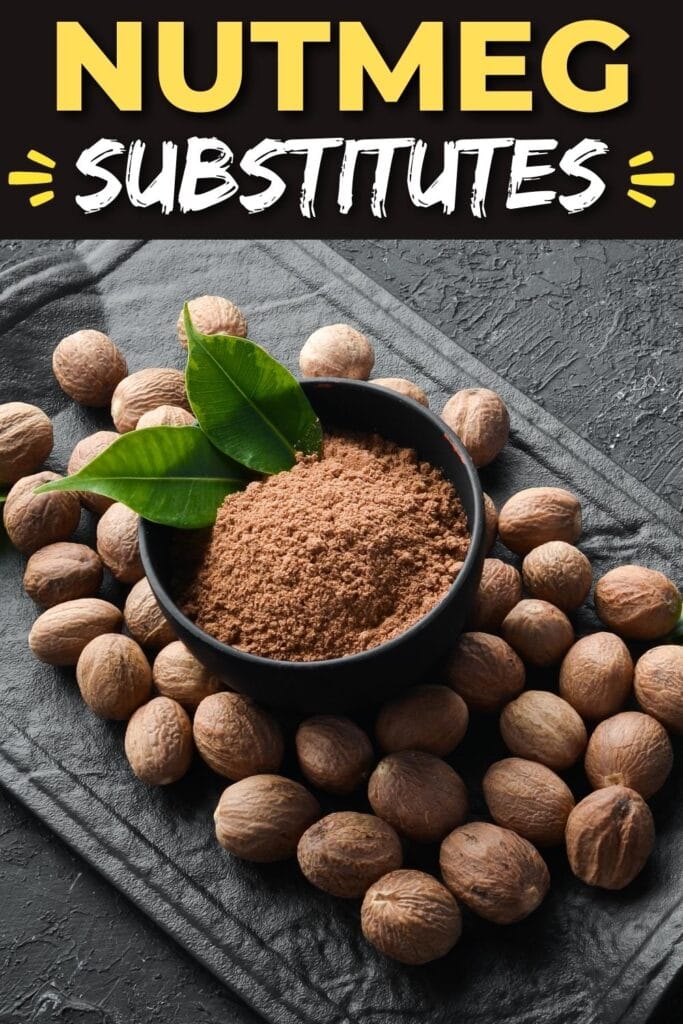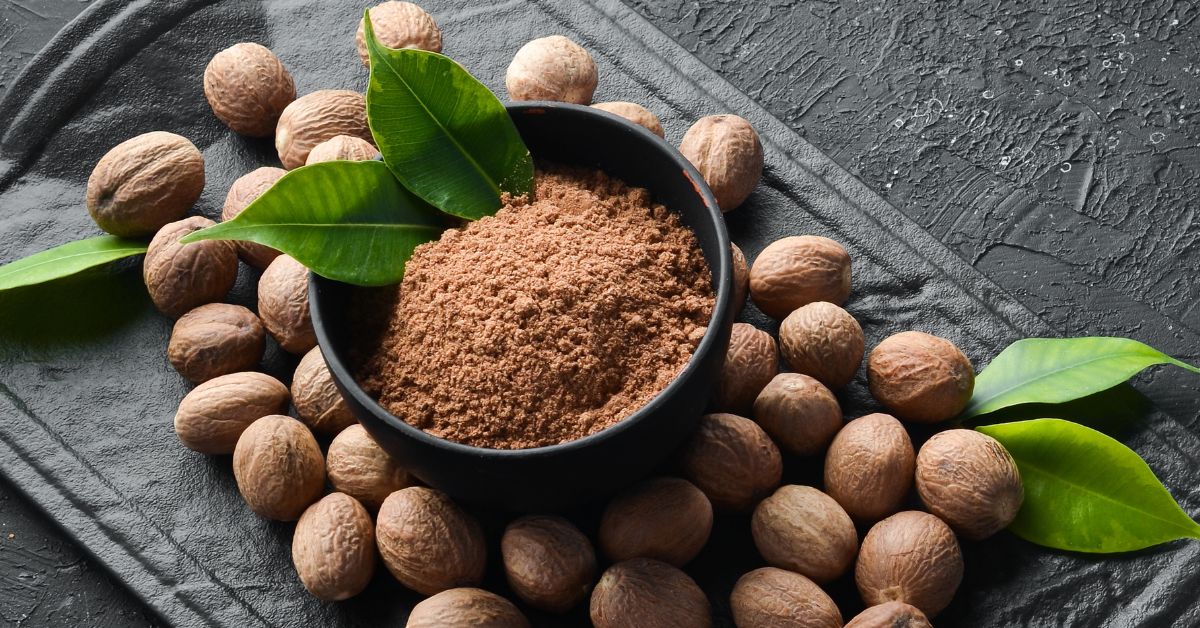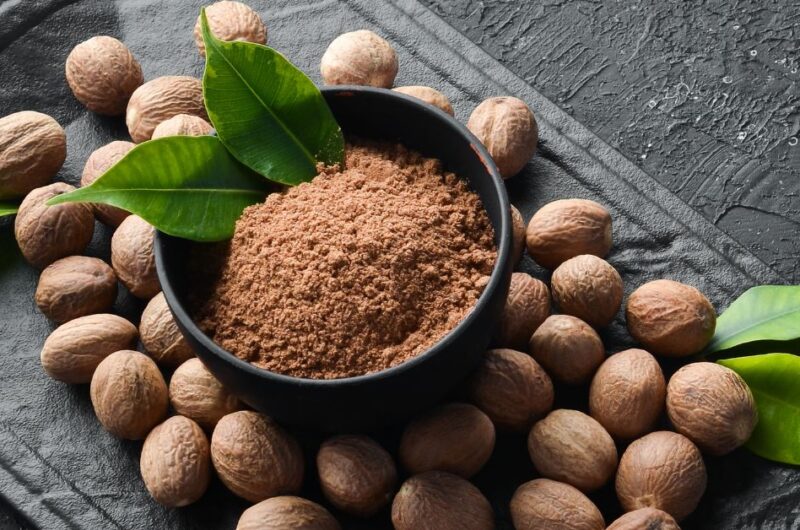Looking for the perfect nutmeg substitute? Here are some of the best alternatives to bring that same cozy, comforting flavor to your favorite dishes.
In fact, many of these substitute options are probably already in your kitchen!
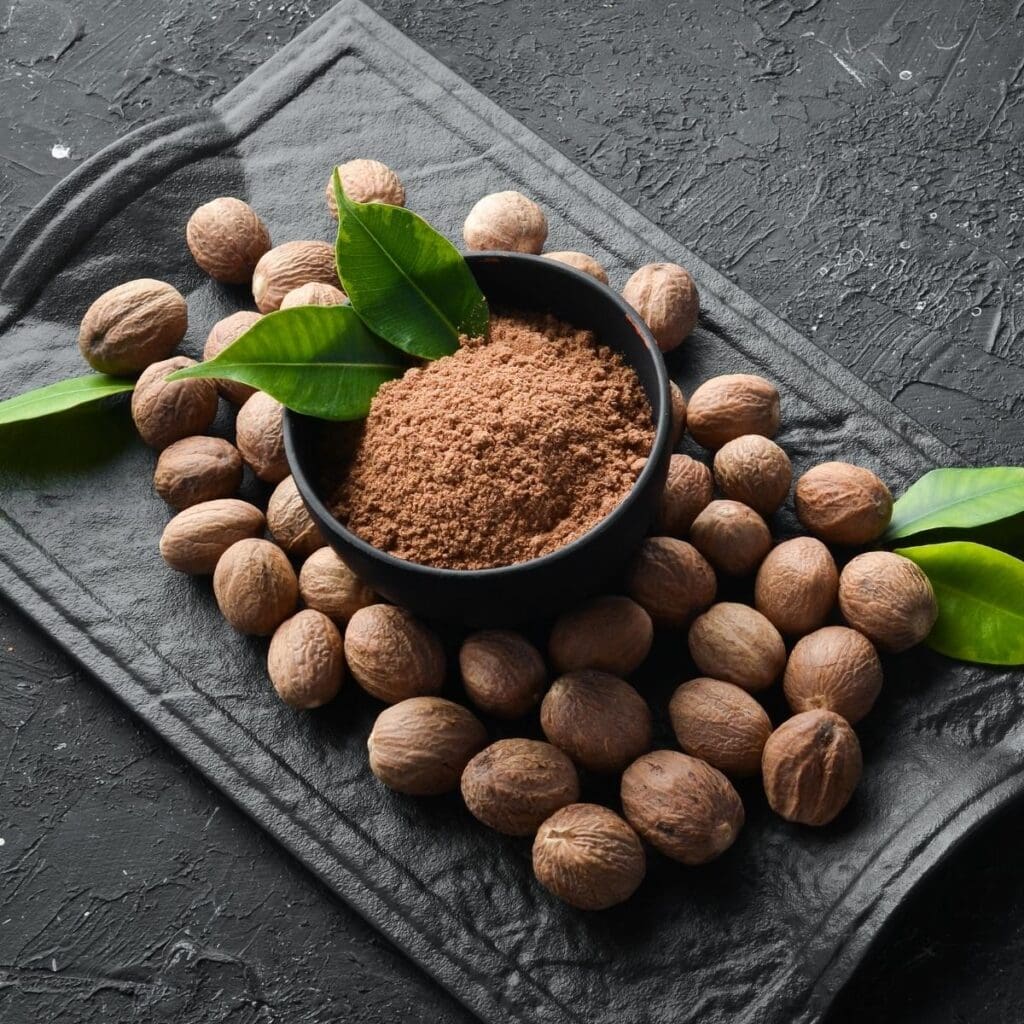
So if you’ve run out of this magical spice, don’t worry. This list will help you find the perfect nutmeg substitute for your recipe.
In fact, you may even discover a new favorite spice!
Best Ground Nutmeg Substitute
The warm, sweet, and spicy notes make nutmeg a fall favorite. You’ll find it in classic holiday treats like pumpkin pie, gingerbread cookies, and eggnog.
But it can also be used in savory dishes like soups and stews.
When looking for the best substitute, consider how the nutmeg is being used. Is your recipe sweet or savory? This will help you pick the best alternative to match your flavor profile.
Some work well for sweet recipes, while others are better for savory dishes.
Either way, this list will help you determine which substitute is right for your needs.
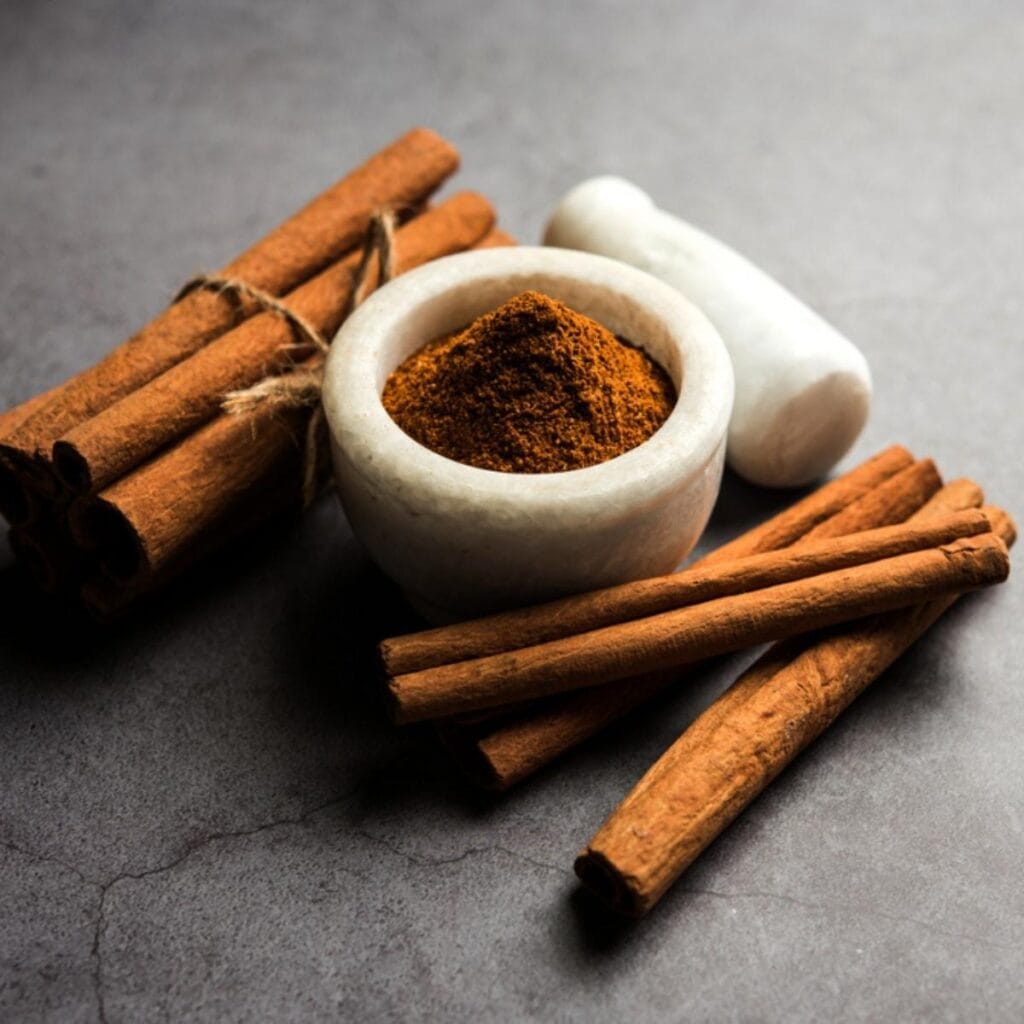
1. Cinnamon
Cinnamon is likely the most used substitute for nutmeg for one simple reason: it’s convenient!
It’s widely available, affordable, and most people have it on hand. Therefore, cinnamon is an easy replacement if you reach for the nutmeg and find it empty.
It also has the same sweet, spiced flavor as nutmeg.
Though most people use it in sweet dishes, cinnamon is lovely in savory ones, too. (Add a dash of cinnamon to your chili, and you’ll never go back!)
Of all the items on this list, cinnamon is the best all-around substitute.
Just remember: cinnamon has a much bolder flavor than nutmeg. That means you’ll need only half as much cinnamon as nutmeg.
So, if a recipe calls for one teaspoon of nutmeg, use half a teaspoon of cinnamon.
You can always add a little more later if necessary. But you can’t remove it once it’s there, so start slow.
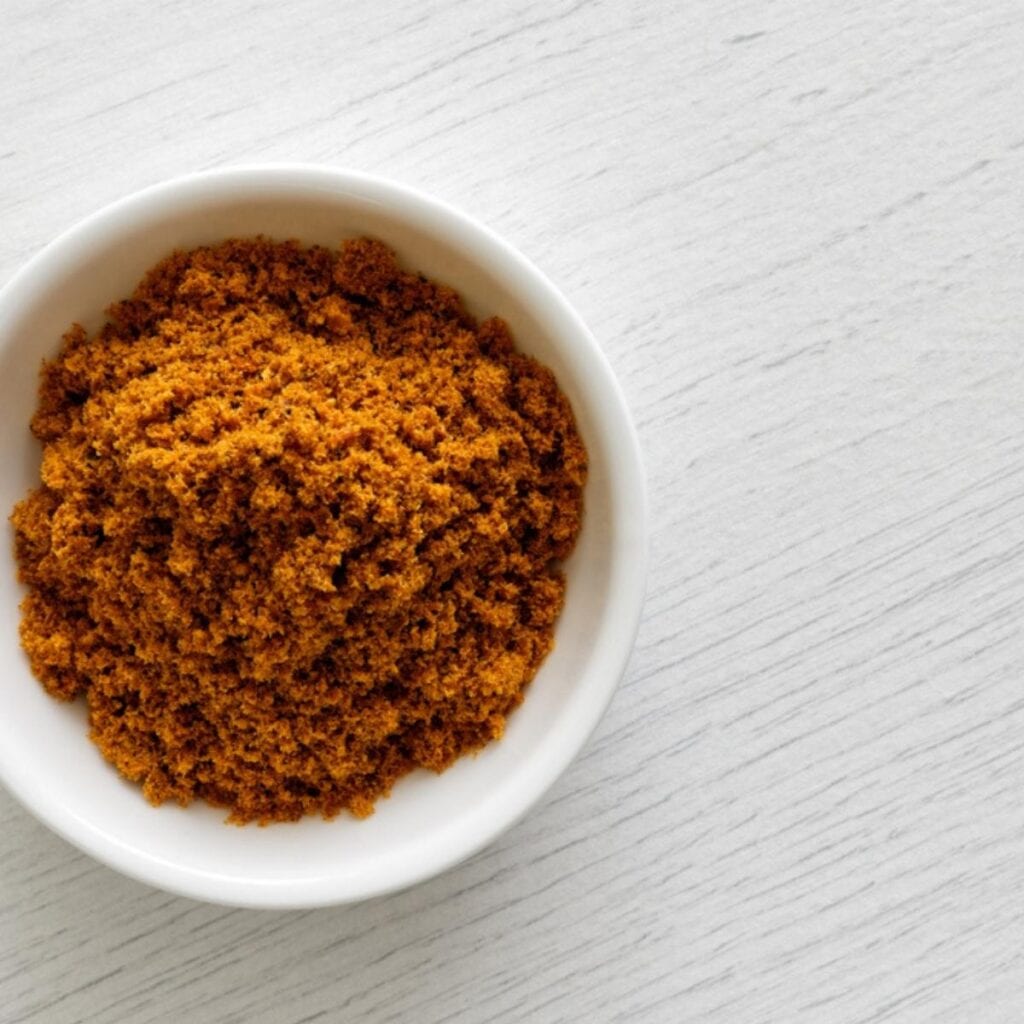
2. Ground Mace
Cinnamon may be the best replacement for nutmeg in terms of convenience. However, in terms of flavor, you can’t beat ground mace.
Both spices come from the same tree and have incredibly similar flavors. And you can use it in sweet or savory dishes, so it’s a great all-rounder.
Keep in mind, though, that mace also has hints of pepper.
In small amounts, it’s not all that noticeable. But it may not work in sweet recipes that need a significant amount of nutmeg.
In high concentrations, the pepper flavor is quite strong and could leave an odd taste in your mouth.
Ground mace works for nutmeg on a one-to-one ratio like pumpkin spice.
That means you’ll use one teaspoon of ground mace per teaspoon of nutmeg.
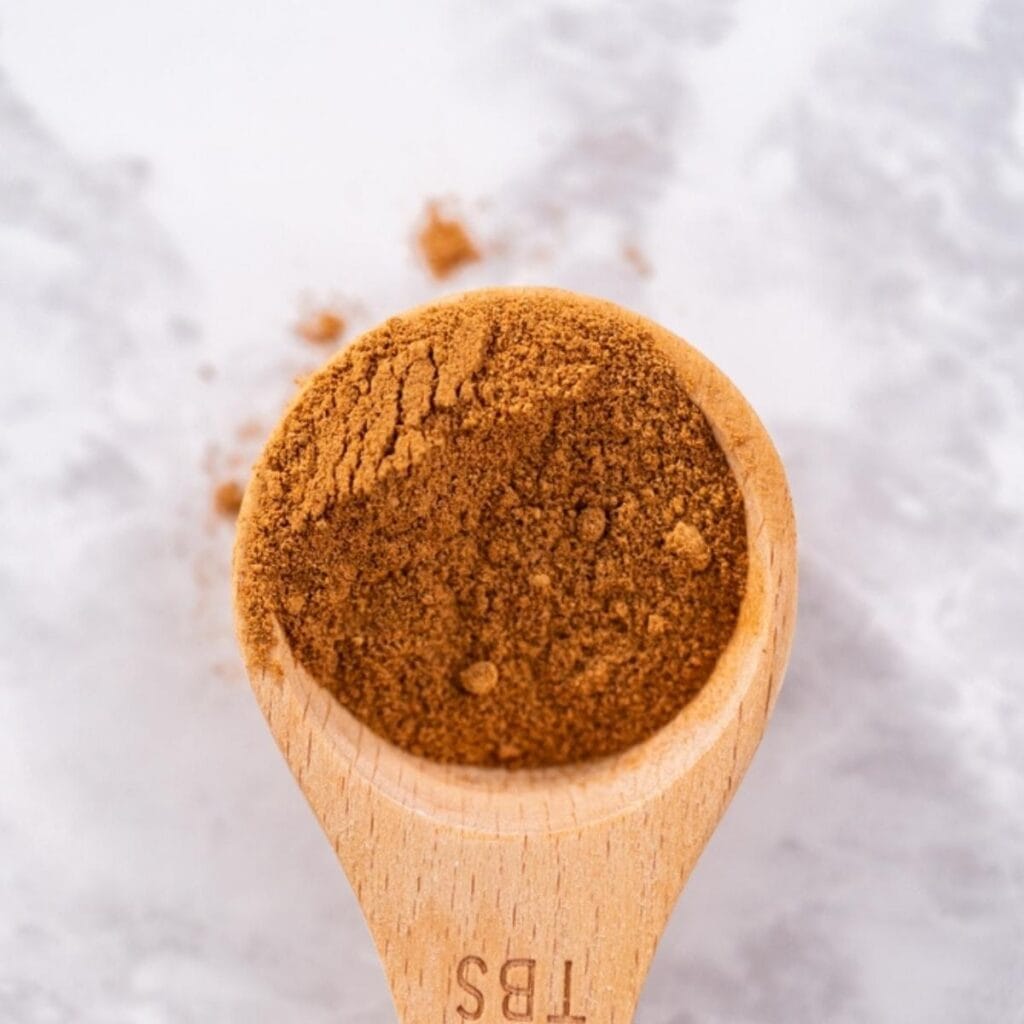
3. Pumpkin Pie Spice
Unlike cinnamon, pumpkin pie spice can’t replace nutmeg in savory dishes. (Well, it could, but you might not like the result.)
However, pumpkin pie spice is an excellent replacement for nutmeg if you’re baking.
It’s warm, rich, sweet, and spicy. Plus, it usually includes nutmeg anyway, along with cinnamon and some other spices.
Because the flavor levels are similar, you can use a one-to-one ratio. So if a recipe needs one teaspoon of nutmeg, use one teaspoon of pumpkin spice.
4. Apple Pie Spice
This substitute is similar to pumpkin pie spice, but with a stronger emphasis on the cinnamon. It’s a simple mixture of popular fall spices, including cinnamon, nutmeg, and allspice. Sometimes it also contains cardamom and ginger.
The sweet, aromatic flavor is perfect for a variety of baked goods. Some of our favorites include pumpkin pie, apple pie, and apple bread.
How to Use: Start with 1/2 the amount of apple pie spice. For example, if the recipe calls for 2 teaspoons of nutmeg, you would substitute with 1 teaspoon of apple pie spice.
This spice blend has a stronger cinnamon flavor, so you’ll want to taste and adjust as you go.
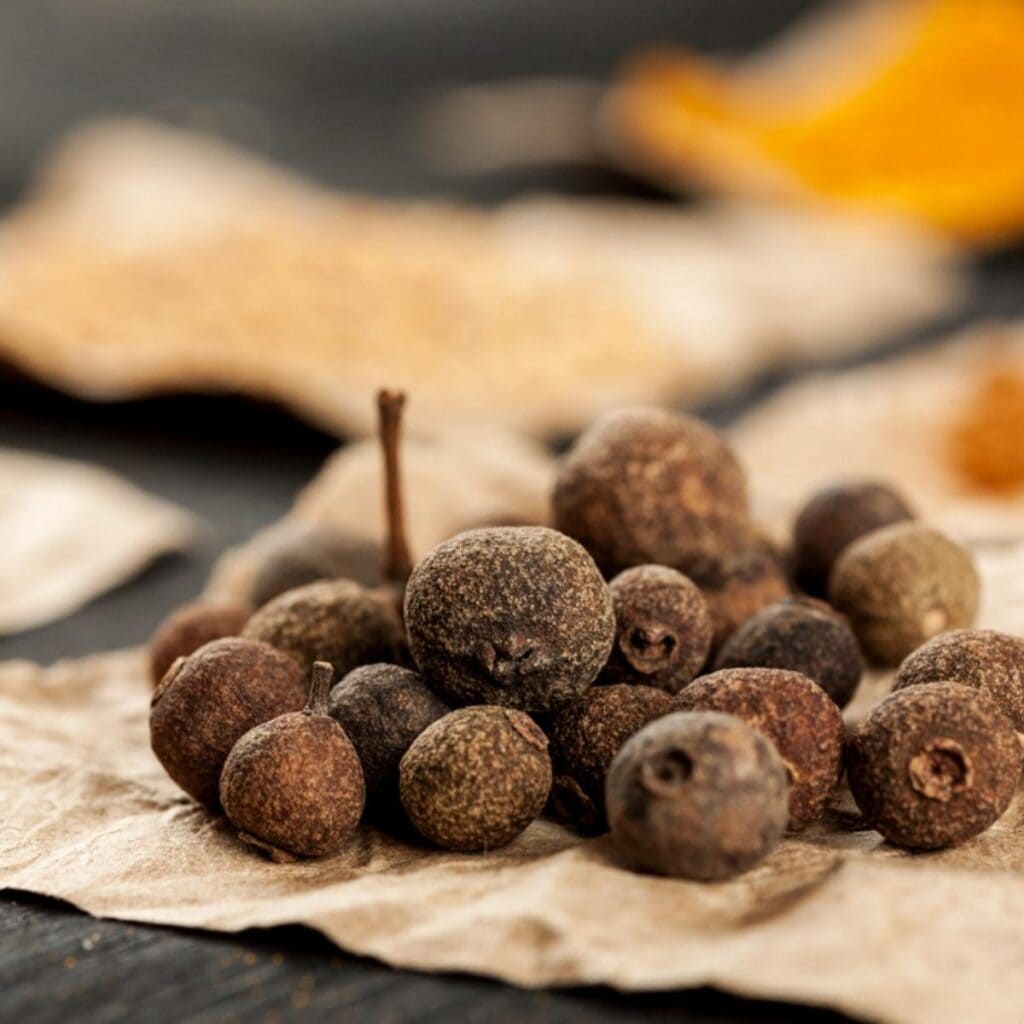
5. Allspice
Let me clear up one major misconception some people have about allspice: it’s not a mixture of all spices.
Instead, it comes from dried and ground allspice berries. As a result, its flavor is somewhere between nutmeg, cloves, and cinnamon.
It works well in both sweet and savory recipes. However, I prefer to use it in savory dishes.
It still has the same natural sweetness as nutmeg but is milder. Even so, it’ll do in a pinch for sweet recipes.
Allspice is another exact ratio swap-out for nutmeg. If a recipe calls for a tablespoon of nutmeg, use a tablespoon of allspice instead.
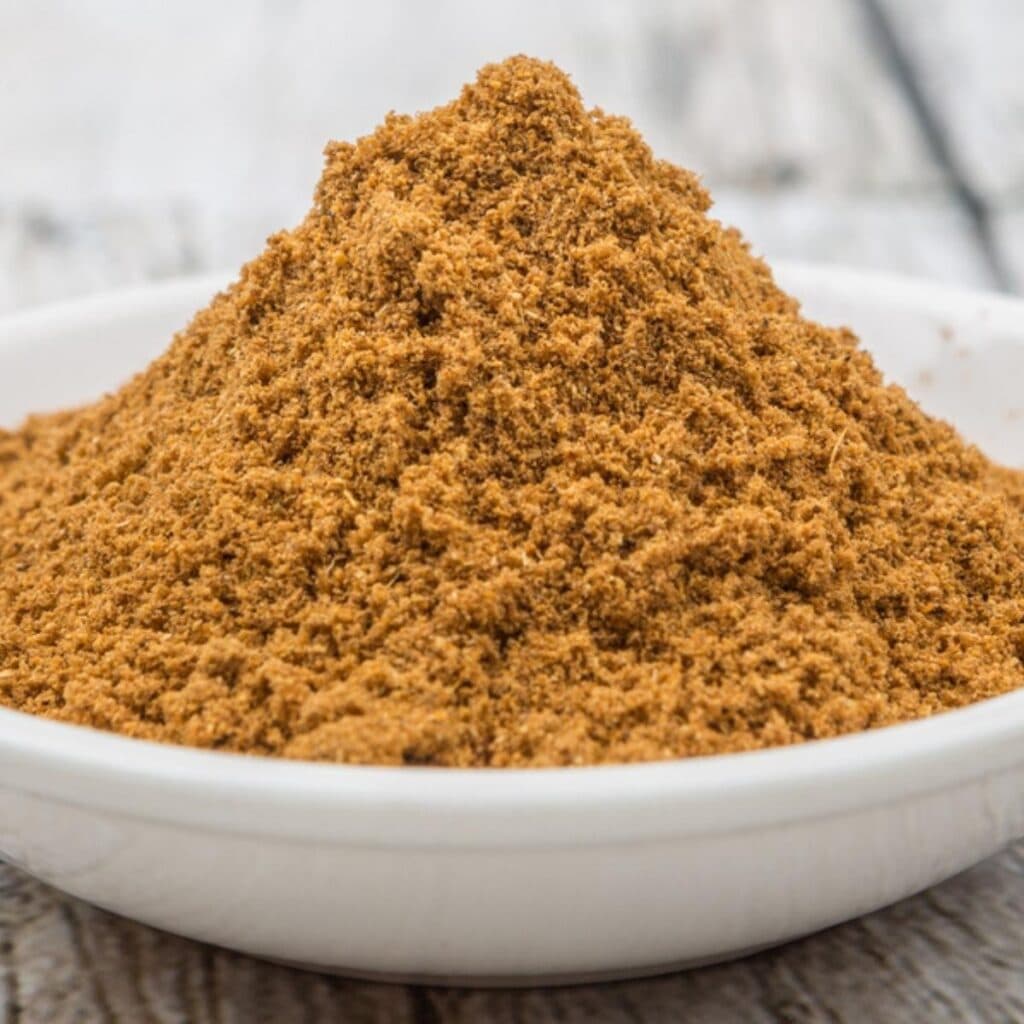
6. Garam Masala
Garam masala may not be as well-known as other options on this list. However, it’s a staple in Indian and Asian cuisine.
So, what is garam masala? Well, it’s a spice blend featuring ingredients like pumpkin pie spice, including nutmeg, cinnamon, cloves, and mace.
It also has a distinctive pepper flavor, thanks to the peppercorns. Cumin and bay leaves are also common ingredients, meaning it’s ideal for savory meals.
In that case, substitute it at a one-to-one ratio (one teaspoon to one teaspoon).
Avoid using it for baked goods or sweet recipes, though. The pepper flavor is much too strong to taste good in those.
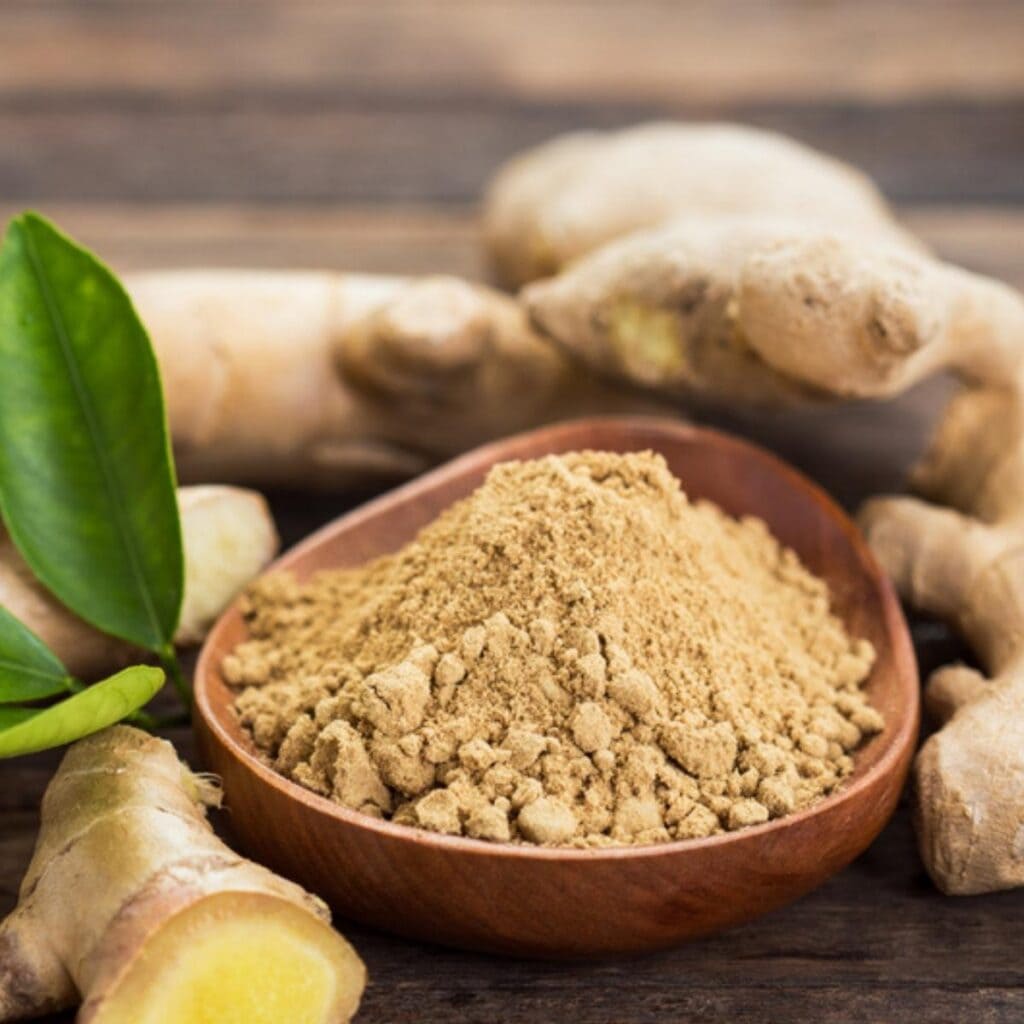
7. Ginger
Ginger is another excellent alternative to nutmeg in savory dishes. However, be cautious if the recipe calls for more than a pinch of nutmeg.
Remember, ginger has a lot of heat. So, you may want to start slow and add more to taste.
And because of the spicy heat, it doesn’t work as well in sweet items. A little pinch along with nutmeg could give sweet treats a nice bite, though.
Most websites and chefs advise swapping it out at a one-to-one ratio. But I’d start with half a teaspoon of ginger per one teaspoon of nutmeg.
8. Ground Cloves
Cloves have a sweet, warm, peppery flavor with hints of spice. This aromatic spice is available in both whole and ground forms. However, for most recipes you’ll be using the ground version.
The strong and spicy flavor of cloves pairs well with the warm and nutty flavors of nutmeg. In fact, you’ll often find them used together in holiday recipes.
But be careful when substituting, as cloves can easily overpower a recipe.
How to Use: Since cloves have a stronger flavor, you should use only half the amount your recipe calls for in nutmeg.
However, if your recipe calls for both nutmeg AND cloves, do not replace the nutmeg with more cloves. This could overpower the recipe. In this case, you’ll want to choose another complimentary substitute.
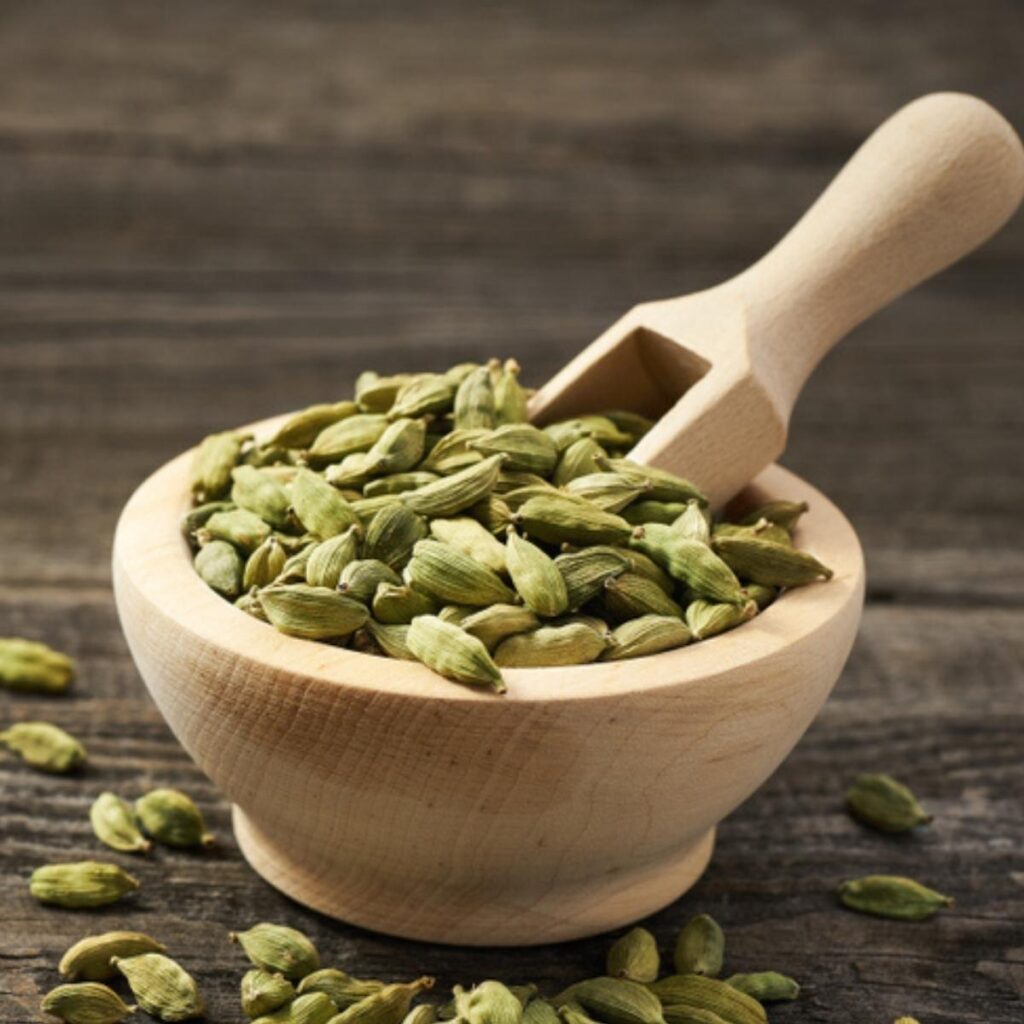
9. Cardamom
Not everyone would agree that cardamom is a good substitute for nutmeg. Their flavors are pretty different, after all.
However, cardamom is rich and warm, just like nutmeg, so it should work if your recipe calls for only a pinch of nutmeg.
It adds the same comforting, belly-warming sensation as nutmeg. There’s just some added herbal notes with cardamom.
That said, don’t use it in a recipe that needs lots of nutmeg. The flavors are just too different for that.
Also, this one works best in sweet dishes.
Use half the amount of nutmeg called for in the recipe (half a teaspoon of cardamom per one teaspoon of nutmeg).
Fresh Nutmeg vs. Ground Nutmeg
Nutmeg is a warm and nutty spice with a hint of sweetness. It’s frequently used when baking desserts. But you’ll also find it in savory dishes.
So what’s the difference between fresh nutmeg and ground nutmeg?
Fresh nutmeg refers to the whole seed found inside the fruit of nutmeg trees. Ground nutmeg is the powdered form of the nutmeg seed.
You can find both forms in most grocery stores. However, the ground version is what you’ll see being used in most recipes because it’s the most convenient.
The difference in taste is quite noticeable. Fresh nutmeg is far more potent and has considerably more flavor. In comparison, ground nutmeg tends to lose some of its flavor over time.
If you want to enhance your recipe, use freshly ground nutmeg. You can’t beat it when it comes to taste! The fresher, the better.
But of course, if want to make your dish quickly, ground nutmeg certainly works!
Other Baking and Cooking Substitutes to Keep On Hand
Cream of Tartar Substitutes
Honey Substitutes
Molasses Substitutes
Baking Powder Substitutes
Baking Soda Substitutes
